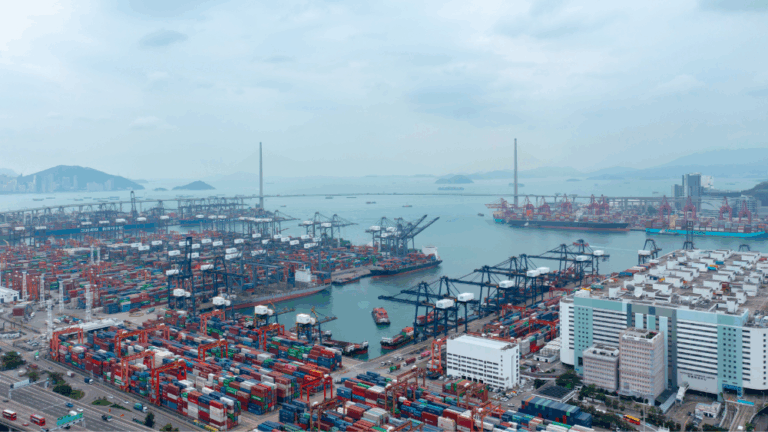
EU-UK Trade and Co-operation Agreement (TCA)
What is the EU-UK Trade and Cooperation Agreement?
The EU-UK Trade and Cooperation Agreement was signed in December 2020, and entered into force on in May 2021. The European Commission website states:
“The EU-UK Trade and Cooperation Agreement concluded between the EU and the UK sets out preferential arrangements in areas such as trade in goods and in services, digital trade, intellectual property, public procurement, aviation and road transport, energy, fisheries, social security coordination, law enforcement and judicial cooperation in criminal matters, thematic cooperation and participation in Union programmes. It is underpinned by provisions ensuring a level playing field and respect for fundamental rights.”
What does the EU-UK Trade and Co-operation Agreement (TCA) mean for goods?
The end of the transition period has brought about the most fundamental change in the UK’s trade policy in a generation. The UK (with the exception of Northern Ireland) is now no longer part of the EU Single Market or Customs Union.
From a customs perspective, the primary benefit of the agreement is the provision of tariff and quota-free trade with the EU. Although the agreement is 1246 pages long the keys elements relating to goods that businesses need to get to grips with is contained in just under 100 pages.
Common misunderstanding: Free circulation is not the same as free trade
Free circulation – a customs union allows goods to be imported into any of the union members and once imported and ‘duty paid’ it can move between the members without additional duty or declarations being required. When the UK was in the EU Customs Union, all customs duty collected went to Brussels and was re-distributed. It did not matter which country collected it as it ended up in the same place.
Free trade agreement – is where two or more countries agree that goods can cross borders with reduced or no duties payable. Declarations are still required and need to be completed carefully to claim the preferential rate and there are rules/tests that need to be met. i.e. the goods must ‘originate’ in the exporting country and evidence must be available in the form of supplier declarations, statements of origin and or certificates of origin.
In conclusion, although this agreement is great news as there is going to be significant tariff/duty savings, trade is not going to be as it once was. There is still lots for businesses to do in relation to understanding the origin tests and what instructions need to be given to the freight forwarders/agents completing the declarations.
Goods traded with the EU will now need to be exported out of the UK and imported into the EU. The member state of import will be the first state the goods enter unless a Transit procedure has been applied. In most cases, you will be required to appoint a freight forwarder to facilitate the trade and submit the necessary documents to the customs authorities. Depending on the incoterms used, you may require local EU VAT registrations or the use of specialist customs agents.
What are Rules of Origin?
Rules of origin are present in all trade agreements between World Trade Organisation members. Their purpose is to control the flow of goods and ensure that businesses do not circumvent rules and liabilities by diverting goods through other countries or contriving processing operations that do not make economic sense for this sole purpose.
Origin is the economic nationality of a good and can be split into ‘Non-preferential origin’ i.e. the deemed country of origin of the goods for the purposes of trade measures, controls and restrictions and ‘preferential origin’ i.e. the deemed country of origin of a good for the purpose of a free trade agreement. Non-preferential rules are found in national legislation while preferential rules of origin are found in the text of free trade agreements.
Goods that are wholly obtained from a single country will always originate in that country, however this typically only applies to goods such as minerals, crops and live animals. Most goods must have undergone a substantial transformation and meet a product specific rule of origin.
These can vary between products and may be based on:
- The ad-valorem, or ‘value added’ rule (usually expressed as a % of non-originating materials compared to exWorks price)
- The change of tariff classification
- Manufacture from certain products or through specific processes
Where can I find the specific TCA Rules of Origin?
The rules of origin are included in Annex 2 to the TCA and most are determined by the first 2-4 digits of the commodity code. You will therefore need to make sure you are happy with your classifications before making a statement.
How do I claim preferential treatment in the UK?
In order to claim a preferential rate of duty included in the free trade agreement, proof needs to be provided. This can take the form of:
• A statement of origin provided by the European exporter on a commercial document (typically the commercial invoice)
• Knowledge obtained and held by the UK importer that the goods are originating. This would be proven by supporting documents and records
You would need to inform your freight forwarder that you intend to claim preference to make sure they declare the right information on the import customs declaration. You will also need to maintain supporting evidence for four years and must provide it if requested by HMRC.
How do I allow my EU customer to claim preferential treatment?
You will need to either:
• Provide a statement of origin on the commercial invoice or other commercial document
• Provide supporting documents and records to allow your EU customer to claim preference using ‘Importers knowledge’
Again, evidence must be maintained for at least four years. In order to make the declaration, you may need to gather evidence from your own suppliers. These are known as supplier declarations.
For UK-EU trade, until 31 December 2021, businesses do not need supplier’s declarations from a business supplier in place at the time the goods are actually exported. However, you may be retrospectively asked to provide a supplier’s declaration later.
What happens if origin cannot be proven?
Sometimes, operations performed on a good are deemed insufficient to change origin. For example, decoration, cleaning and simple assembly are all examples of processes which are insufficient to change the origin of an item. In other cases, the goods may fail to meet the rules, or you may not have sufficient evidence of the provenance of the goods. In these cases, the goods can still be traded but will be subject to standard ‘Most Favoured Nation’ Tariffs. It should be noted that claiming preferential origin is not mandatory.
Origin rules for small consignments
Some goods may be imported without the need for a formal proof of origin (a waiver).
For imports into the EU, this waiver applies to goods valued under:
• €500 in the case of products sent in small packages, or
• €1,200 in the case of products forming part of a traveller’s personal luggage
For the EU, the waiver does not apply to commercial imports.
For import into the UK, a waiver applies to any goods valued under £1,000, regardless of whether they are imported for commercial or non-commercial purposes.
However, shipments cannot be arbitrarily broken down into a series of importations for the sole reason of avoiding the normal requirements.
How do I trade with Northern Ireland?
Northern Ireland (NI) remains in the EU customs territory. This means that NI businesses continue to follow EU customs legislation and operate from the EU rather than UK trade tariff. When sending goods from GB to Northern Irish customers, you may be required to submit paperwork such as an Entry Summary Declaration to HMRC. You may also require a special NI EORI number if you are going to be responsible for accepting the goods into NI. The Government has set up the Trader Support Service (TSS) to aid and reduce the admin burden for businesses.
Further issues addressed by the agreement
The agreement includes specific provisions for several important product groups, including medical items, automotive products, chemicals, organic products and wine.
Hauliers can continue to transit through UK and EU territories using Common Transit Convention provisions and UK hauliers do not require special permits for their drivers.
The EU has also agreed to the mutual recognition of Approved Economic Operator (AEO Status).
Further issues not addressed by the agreement
No mutual recognition has been agreed in regard to conformity assessments. This means UK manufacturers will need products assessed by an EU-notified body.
For Sanitary and Phytosanitary goods, the UK has been given ‘National listed status’ by the EU but little has been done to reduce the admin burden required to export agri-food.
The agreement also does little to prevent the imposition of future trade remedy measures, meaning that it is feasible that UK goods could be subject to EU Anti-Dumping Duty if relations sour.
Get in touch
Should you have any specific queries relating to the EU-UK Trade & Co-operation Agreement or require any further assistance, please contact us.









